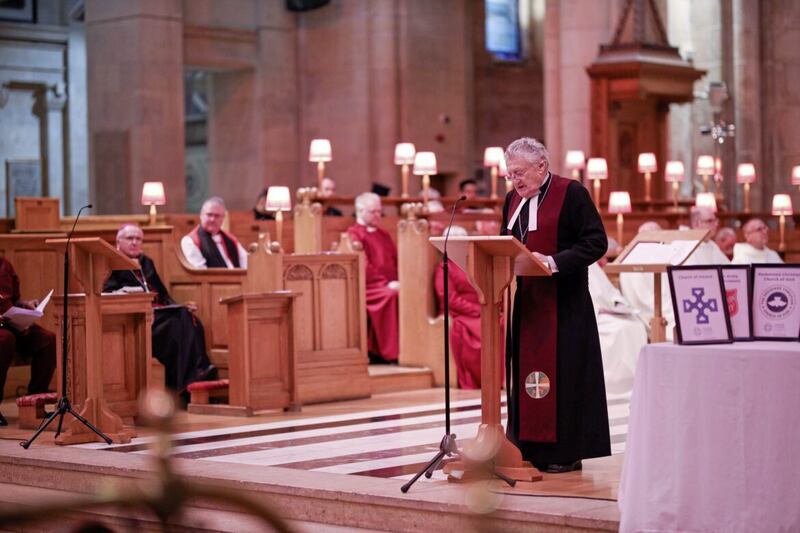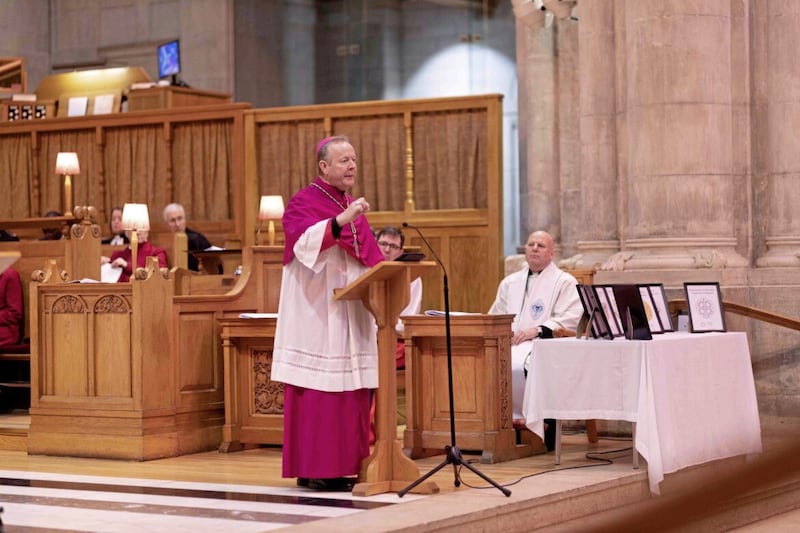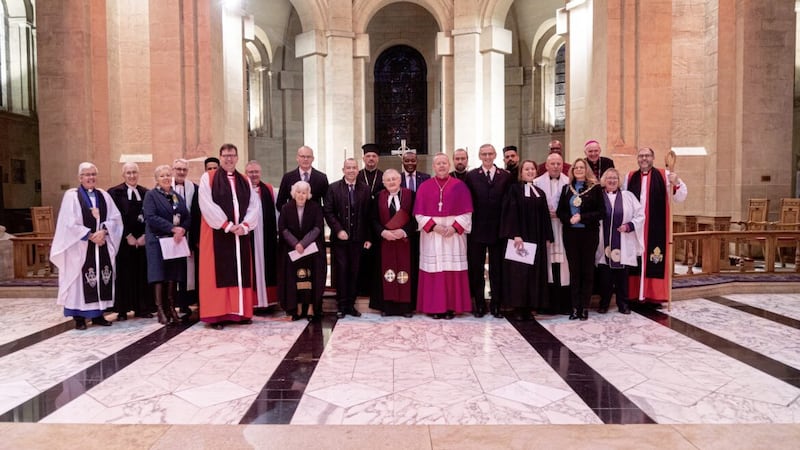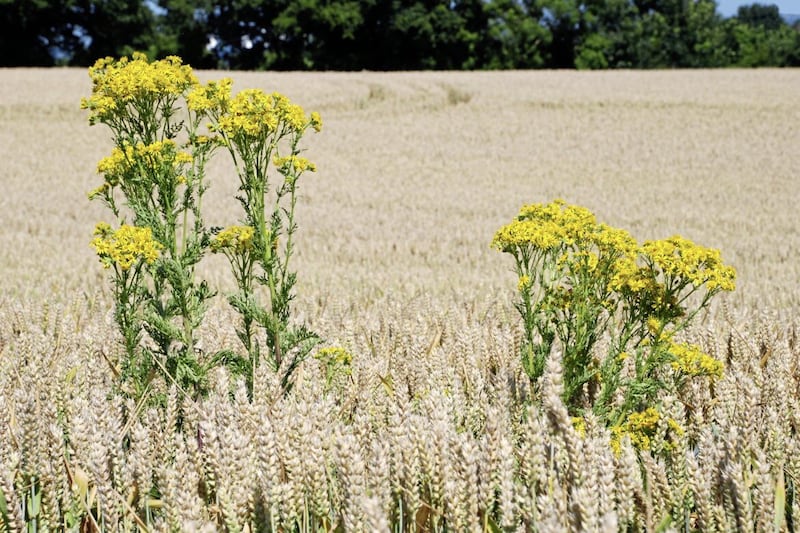TIME was very much on the minds of clergy, the congregation and distinguished guests as we gathered in St Anne's Cathedral in Belfast last Sunday to celebrate two significant anniversaries.
The next day, Monday January 23, marked the 100th anniversary of the first meeting of the forerunner of the Irish Council of Churches (ICC). And later this year, the Irish Inter-Church Meeting (IICM) – which brings the Roman Catholic Church together with the ICC member Churches – will celebrate a significant 'birthday' of its own: its origins date back 50 years to the Ballymascanlon talks of 1973.
These are challenging times for all the Churches on this island, so what – one might wonder – do we have to celebrate?
Well, the provenance of both the ICC and the IICM harks back to harrowing times in our history. When the former first met, the Irish Civil War was still raging, while the latter emerged in response to the violent early part of the recent Troubles. So, things have improved enormously, in that sense.
Both organisations have also evolved over the decades. A century ago, the ICC went by the much lengthier name of the United Council of Christian Churches and Religious Communities in Ireland. Back then, it included representatives of seven Churches: the Church of Ireland, the Presbyterian Church, the Non-Subscribing Presbyterian Church, the Methodist Church, the Moravian Church, the Congregational Union and the Religious Society of Friends/Quakers).
One hundred years on, we enjoy an even wider representation, reflecting the greater diversity of people who now call Ireland 'home'. Five of our Churches are from the Orthodox traditions and two have their origins in Nigeria.
Relations between the Protestant and Roman Catholic Churches have improved markedly over the last half century. The chilliness and suspicion of the early 1970s have dissipated, giving way to warm friendship, respectful of difference. So, as we gathered in St Anne's Cathedral there was much to celebrate and be thankful for.
The congregation – which included the Lord Mayor of Belfast, Tina Black; the secretary of state for Northern Ireland, Chris Heaton-Harris; and Ireland's enterprise, trade and employment minister, Simon Coveney – were addressed by two leading churchmen: the Roman Catholic Archbishop of Armagh and Primate of All Ireland, Most Rev Eamon Martin, and a former President of the Methodist Church, Rev Dr Harold Good.

Dr Good challenged the Churches to bring two words - 'humility' and 'hope' - into our work, as we seek to continue the unfinished work of peace that is so evidently needed as the 25th anniversary of the Good Friday/Belfast Agreement draws nearer.
As Churches, he said, we have "not always been obedient to the Gospel entrusted to us".
"Too often we have been silent when we ought to have spoken and too often we stood back when others fuelled the flames of sectarianism and strife," he said.
However, despite our human failings, we are inspired to continue our reconciling work by a vision of hope – hope that Dr Good said was "rooted in the unshakeable conviction that if we say and do and be the people that we are called to be, God will not be found wanting".
As Christians, we believe in a God of power and love, who longs for us to live out that love in our engagement with the world and people around us. When we do this, things shift, and new possibilities and ways of being become apparent.
In his address, Archbishop Martin considered how we might do that in practice. Today's Ireland is very different from when our predecessors first met 100 years ago, but there are difficulties still.
Violence has abated – though sadly not entirely disappeared – and a deep pain remains in so many of our hearts, and deep division in our communities, that has not been addressed or healed.

Archbishop Martin suggested that there may be a role for the Churches in helping to develop "an agreed truth recovery process to address the legacy of pain and mistrust that continues to hang over us". He wondered whether Churches could "also work together to create spaces for dialogue at parish, congregation and community level so that all voices can be fully heard about the kind of society and values we want for our children and grandchildren."
During this milestone year, as 'Churches in Ireland, Connecting in Christ', we are seeking to discern how we need to adapt and change in order to serve the common good.
Peacebuilding and reconciliation have always been central to the ICC and the IICM's work, but so, too, have justice and concern for the marginalised. We have long advocated on issues as diverse as unemployment, penal reform, human rights and mental health. Nowadays, our sights are also trained on problems such as homelessness, housing insecurity, climate justice and the rights of asylum-seekers.
Our belief that this work will not prove in vain comes from our faith in God and his eternal perspective. A century is a long time in human terms but, by God's measure, it is but the blink of an eye.
In the words of my IICM co-chair, Bishop Brendan Leahy: "We are grateful that after all that has happened on this island over the past century, we are still able to join together to worship God, thanking Him as we continue to pray for the unity that is Christ's gift to the Church, and for a servant heart. In humility, may we serve and love one another in and across communities and, in doing so, work for the common good."
The Rt Rev Andrew Forster is president of the Irish Council of Churches and the Church of Ireland Bishop of Derry and Raphoe.









